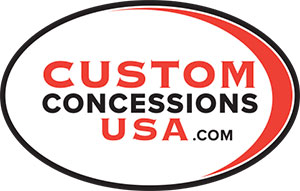
Photo by Guillaume Gryn_DVS on Unsplash
Are you tired of working your tail off in a hot kitchen, only to be paid a pittance for your hours? Are you exhausted with your demanding boss, and wishing that you could do what you love at work—cooking—but do it for yourself instead of for your manager?
If so, then it sounds like you’re the perfect candidate to start taking command of your career and open a food truck that you can run on your own. Before you do so, however, you need to be aware of these seven food truck regulations so that your newly-opened business does not run afoul of the law.
1. Get a Vendor License
The first thing that you’ll need to do is get a vendor license from your state. This is a legal certificate that gives you the right to own and operate a restaurant entity. The process for applying for a food truck license will be different depending on your state.
2. Tax ID
The next basic regulation your business will need is a tax ID. This identification number is what allows you to collect sales tax from your customers. The government always wants its slice of the pie, so make sure that all of the transactions are subject to local sales taxes.
3. Commercial Driver’s License
Depending on the weight of the food truck that you operate, you may need to get a commercial driver’s license, or CDL, to drive it. If you choose the right vehicle for your food truck, however, you’ll be lucky enough to avoid this step.
Practicing for and getting your CDL is no joke. Most state DMVs take the road test for a commercial vehicle very seriously, and the bar is set pretty high.
4. Mobile Food Vendor Permit
You’ll need to apply for your state’s mobile food vendor permit. For many states, the number in circulation at one time may be limited. Thus, you must apply for this permit as soon as possible to ensure that you get to the top of the pile if there’s a waiting list.
5. Food Manager Certificate
Next, some state or local ordinances require that you receive a food manager certificate. This qualifies your business to handle, store, cook, and sell food. You’ll need to pass a basic inspection to prove that your food operations are healthy and safe.
6. Food Purchasing Protocols
You should know that in some states, food is not allowed to be cooked in a vehicle. That means food trucks can’t prepare the food inside the truck—the food needs to be prepared on something that isn’t a mobile conveyance and can then be sold from the truck.
If that’s the case, you’ll have to prove food purchasing and preparation processes when you apply for your mobile vendor permit.
7. Parking Permit
Last but not least, remember that you can’t forget one of the most basic regulations of all: parking! The last thing you want is for your food truck to be booted, towed, or otherwise immobilized. Ensure that you are permitted to park and have the right authorization wherever you set up shop.
Food Truck Regulations You Need to Know
There you have it! Now that you know these food truck regulations, you’re all ready to start your business and keep it on the right side of the law.
If you’re ready to look at a vehicle for your food truck operations, contact us for a free quote!
Want more food truck advice? Check out more blog posts here!
Thinking about starting a food truck? Request a free custom quote and one of our food truck specialists will help you design the truck of your dreams.
Stay up to date on everything Custom Concessions has to offer! Like us on Facebook and follow us on Twitter.
